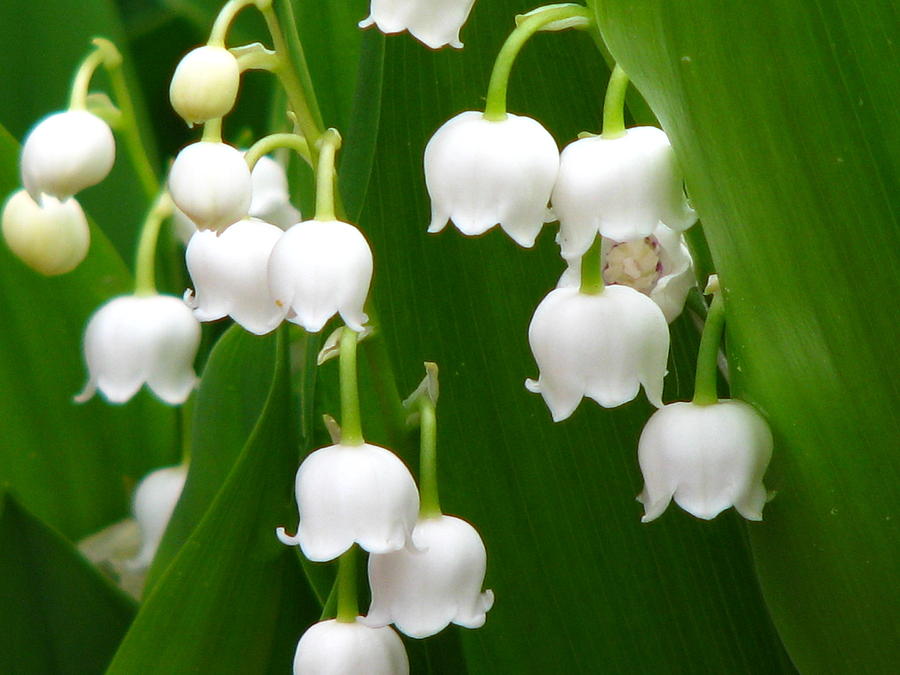Lily of the Valley – A Most Efficient Tonic of the Heart
Lily of the valley, with its delicate and joyful flowers, brings happiness and purity into the hearts of those who give or are given even a small bouquet. But due to its particular composition, it seems that lily of the valley can also give contractile strength to the hearts of those who consume it (with moderation, of course, because the same therapeutic principles, and a lot of other substances contained in lily of the valley, can become toxic even in case of a moderate overdose or overuse).

Contents
Composition and properties
Lily of the valley’s medicinal properties are due mostly to the presence of cardiac glycosides and saponins. Cardiac glycosides are organic compounds that can stimulate the contractile force of the cardiac muscle. Most of them, according to their potency, are extremely toxic, the main symptom of intoxication being heart palpitations caused by ventricular tachycardia. Other symptoms of cardiac glycosides intoxication include: blurred vision, allergic reaction, rash, hives, diarrhea, nausea, vomiting, stomach pain, weakness, confusion, disorientation, drowsiness, fainting, headache, lethargy, apathy. In case of severe poisoning, ventricular tachycardia turns into ventricular fibrillation, which will lead to death. In lily of the valley there have been found approximately 40 different cardiac glycosides.
Medicinal uses
- Migraines
- Neuralgia
- Epilepsy
- Paralysis
- Conjunctivitis
- Bronchitis
- Irregular heartbeat
- Heart insufficiency, heart failure, aortic insufficiency, mithral insufficiency
- Urinary tract infections
- Kidney stones
- Water retention
- Arthrosis
Preparation and administration
Add 1 tablespoon of dried herb (mainly rhizomes and flowers, but leaves also) in a cup of hot boiled water and let steep for 5-10 minutes. Drink 1-2 cups a day.
Precautions
Do not consume lily of the valley’s fruits. They are extremely toxic even in small amounts.
Do not exceed the daily dose and always seek the advice of a specialist before beginning to consume lily of the valley.
Lily of the valley is contraindicated for those who recently suffered a myocardial infarction and also for those who suffer from severe liver diseases, pulmonary stasis, acute kidney and spleen disorders, catarrhal gastroenteritis or fatty degeneration of the myocardium.
Lily of the valley should be taken with precaution even in cases of slightly lower potassium levels, because the cardiac glycosides will cause the body to lose even more potassium and this can be harmful to the heart. If you begin consuming lily of the valley, make sure you eat enough foods high in potassium.
Lily of the valley should not be taken along with digoxin, calcium supplements, lithium, quinine, certain antibiotics (macrolide and tetracycline antibiotics), diuretics, stimulant laxatives or corticosteroids.




My birth flowers